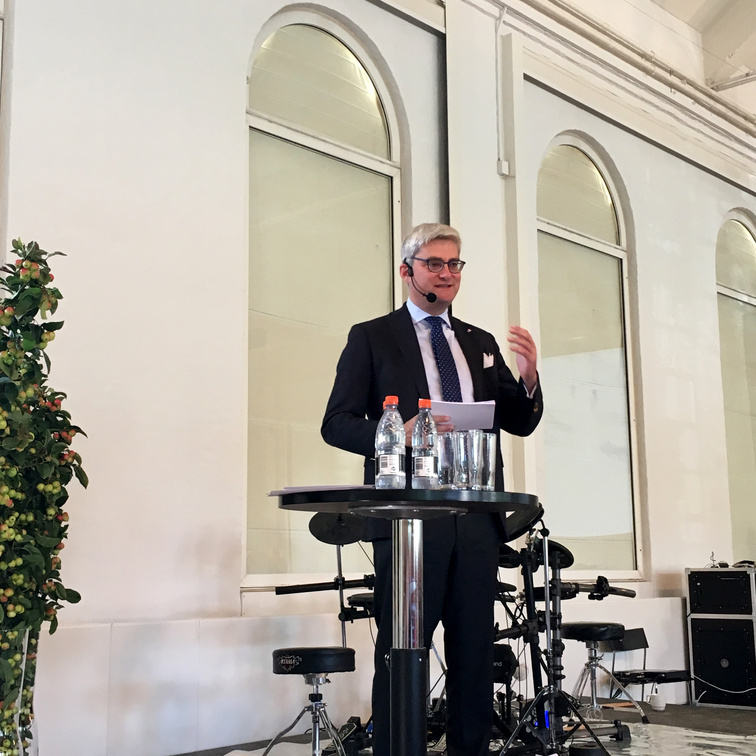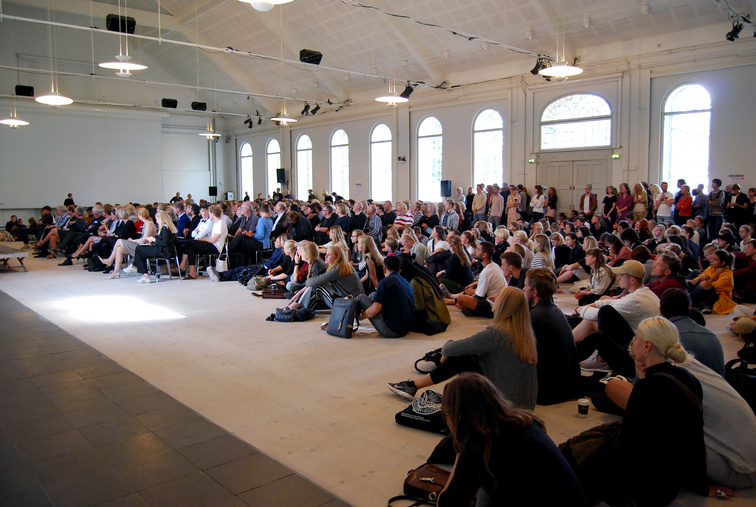Minister: KADK’s Graduates Need to Master the Use of Machines
Artistic programmes of study are becoming increasingly important in a technological future, where the need for a creative, human approach will grow. This is the opinion of Søren Pind, Minister for Higher Education and Research. But if KADK’s graduates are to become masters of the machines, they first need to speak their language.
“Artistic programmes of study are important, because in the future the human element is going to play a much greater role.”
This was the prediction of Søren Pind, Minister for Higher Education and Research and self-proclaimed ‘minister of the future’. On 1 September he addressed students both old and new at the opening of the new KADK academic year on Holmen.
“Machines will take care of all the automatic things. That means that the empathic, creative and social aspects – all the things we dub with that somewhat strange term, ‘soul’ – will be left to humans. In order to be masters of the future, masters of the machines, masters of artificial intelligence, we must also have technical skills. It will be tough. But be aware that these programmes of study will play a major role in the process.”


Technological insight is essential
So, in the opinion of the Minister, technological knowledge will also be crucial for students studying artistic subjects, because in the future technology will be the predominant context for their creative, human statements. In other words, if KADK’s graduates are to become masters of the machines, they must also be masters of their language.
“Actually, in the future, engineers will also be expected to be humanists, while the humanists of the future will also be expected to be engineers. And artistic education will be in the centre of all this. It is there that creativity must play a role, it is there that we need to make sure that the machines still understand that we must respect the boundaries of the soul,” said the Minister.
“That is why we must increasingly implement technology in artistic programmes of study, because, when constructing a technical data solution that can express creativity in some context or another, we also need to be able to handle this aspect of the case.”
Contemplation and culture
Søren Pind emphasises that, in order to meet the future challenge, however, we will also need to understand the foundation we stand on. That is why culture is an even more important criterion: not only for the artistic, but also for all the programmes of study in the country. “In other words, we must understand what it means to be human. We must understand the civilisation that came before us. And that takes time. You have to study it in depth and try to understand it. So my key advice to KADK’s students is: study things in depth. Also remember to enjoy it. It is also hugely important in terms of the Scandinavian way of doing things. But we need to rediscover that diligence and contemplation are also prerequisites for outstanding effort.”


